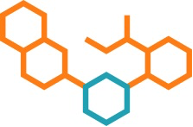AER-V-Recommendations for international project managers competences recognition and validation for lifelong learning
|
Overall Oobjective
The overall aim is to support the recognition and validation of knowledge, skills and competences of international project managers active in Civil Society Organisations (CSOs) in the adult education sector, acquired through formal, non-formal and informal learning.
Target Groups
The direct target group of the project includes the members, workers, co-workers, educators and volunteers of the Third Sector adult education organisation (I.E.Civil Society Organisations, including informal groups, Non-governmental organisations and other non-profit organisations). The indirect target group include a wide range of education-related organisation, institution and decision-makers. The dissemination activities would reach, in total, at least 44.830 recipients.
Partners
Project partners are six 3rd sector civil society organisations working in the field of lifelong learning and adult education from Poland, Italy, Denmark, Austria, Portugal and Cyprus. Even though all the organisations involved are 3rd sector and working in the field of lifelong learning, they have various profiles and experience – which makes the Partnership composition somehow representative of the adult liberal education sector in Europe.
Methodology and Activities
The design of the work programme is chronological, and divided into 3 main phases. Project activities are divided into 13 Work Packages, including transversal activities of management, evaluation and dissemination. There are 6 Transnational Project Meetings (TPM) planned: 1 introductory meeting (KICK-Off meeting), one summary meeting (aiming at establishing an Exit Strategy for the project) and 4 workings meetings aiming at exchange of good practices. The workflow during the 4 workings meetings follows logical, subsequent steps of the process of competences recognition and validation. There is also one International Training Event (short-term joint staff training event) planned based on experiential learning. The work programme also includes one start-up package (WP01), a short desk-research package (WP03) and a concluding package (WP10) finalized in delivering final recommendations for future works of the Partnership and the International Support Networks supporting first-time international project realisers development.
Results and Impact
The results of the project will be tangible and intangible (material and immaterial). The direct tangible results will be reached during the work packages, while the intangible will be illustrated in the field of increased of knowledge, skills and awareness, change of attitudes etc. The indirect, third level of results are those long-term ones, clearly connected with the varied project impact. The direct intangible results will be seen both on individual and organizational levels, referring to change of attitudes and values related to international cooperation realizing, the introduction of innovations, professionalization of the adult education staff, and development of long-term development strategies of the 3rd sector adult learning organisations.
Final Recommendations
Based on the results of the AER-V SDDP of the International Facilitators Training School 2022 the recommendations for the validation and recognition system for the European project managers working in the civil society organisations are:
- Acknowledge that the dimension of mission and purpose is crucial in the 3rd sector.
- Define clear definitions/understandings of competences, skills and experiences.
- Build competence validation and recognitions systems encompassing not only theoretical but also practical part of a competence.
- Allow flexibility that considers diversity of the civil society.
- Recognise cultural and social differences.
- Be sensitive of the qualities of values and attitudes.
- Ensure validation through transparent procedures.
- Ensure recognition of formal, non-formal and informal knowledge.
- Ensure simplicity to understand and measure.
- Allow accessibility for those already working in the area [of civil society] and also those without experience.
- Take into account the complexity of the individual personality [of the candidates to validate and recognise their competences].
- Take into account work experience in various areas.
- Have the recognition and validation system evidence based to achieve recognised status in the European Union.
- Include references to the already existing, similar/relevant recognition and validation schemes to avoid' reinventing the wheel".
By making progress in the above mentioned areas we will address the most important and useful root characteristics of the useful and practical validation system for the European projects' managers and achieve change in many other areas such as the ideas illustrated in the levels VII-I in the influence map.
Sustainability
Two project results have been especially sustained after the project ended:
- The Recommendations for building a new competence recognition and validation system
- The developed International Support Network supporting first-time international project realisers.
Related Workshops
During the period of the project were organized 3 workshops and an International debate.
SDDP Training
AER-V SDDP of the International Facilitators Training School 2022
